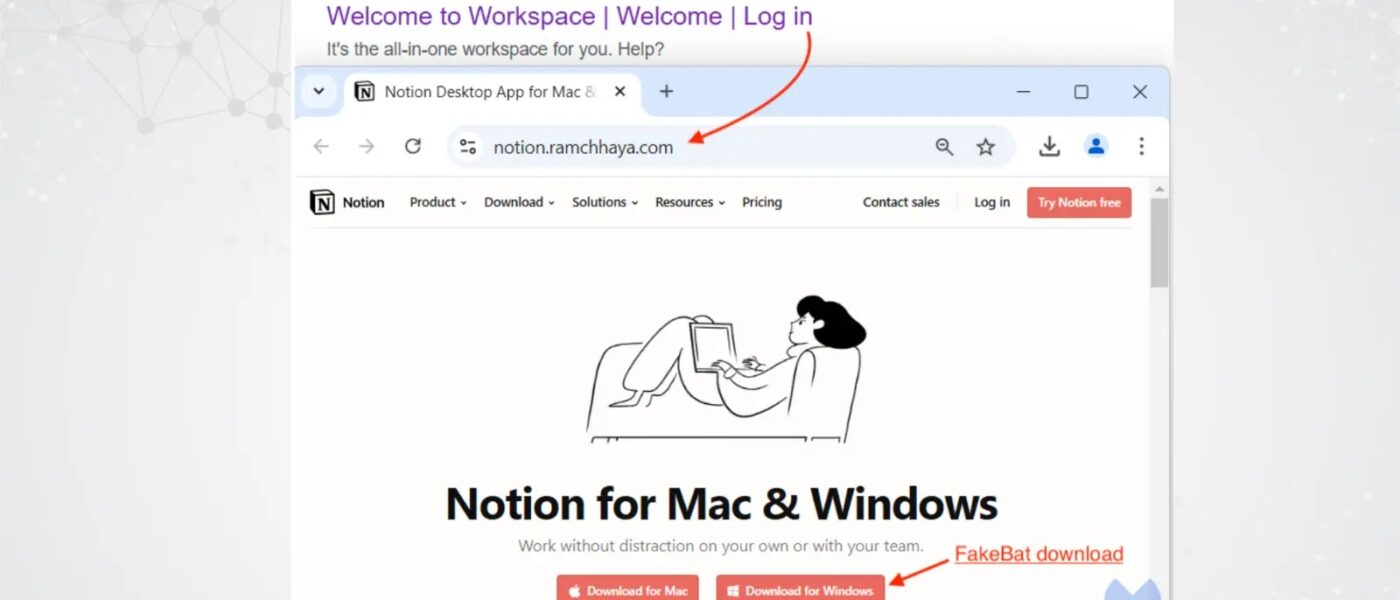Hackers Abusing Google Advertisements To Ship Fakebat Malware
Cybersecurity researchers have uncovered a resurgence of the Fakebat malware loader being distributed by means of malicious Google Advertisements. After a months-long break, Fakebat has resurfaced, specializing in customers who’re on the lookout for standard productiveness software program.
Malwarebytes detected a malicious Google advert impersonating Notion, a broadly used productiveness utility.
The advert appeared on the prime of search outcomes and regarded fully reputable, with an official emblem and web site. Nevertheless, clicking on it led customers by means of a collection of redirects earlier than in the end delivering the Fakebat malware.

Fakebat, often known as Eugenloader or PaykLoader, is a classy loader-as-a-service (LaaS) malware that has been lively since no less than December 2022.
Managed Detection and Response Purchaser’s Information – Free Download (PDF)
It’s designed to obtain and execute numerous secondary payloads, together with info stealers like IcedID, Lumma, and RedLine.
The malware’s distribution technique exploits Google’s advert platform by utilizing monitoring templates to bypass detection, reads Malwarebytes report.
If the consumer just isn’t an supposed goal, they’re redirected to the reputable web site, making it troublesome for Google to determine the malicious exercise.
As soon as put in, Fakebat employs a number of phases of PowerShell scripts to evade detection and sandbox environments. The ultimate payload on this marketing campaign was recognized because the LummaC2 Stealer.
This resurgence of Fakebat highlights the persistent menace of malvertising campaigns. Regardless of a current lower in such assaults, cybercriminals can shortly revert to those confirmed strategies.
The incident underscores the continuing problem of brand name impersonation in Google Advertisements, the place built-in options could be exploited to create convincing faux ads.
Cybersecurity specialists stress the significance of vigilance when clicking on search engine advertisements, even for well-known software program. Customers are suggested to confirm the authenticity of obtain sources and preserve up-to-date safety software program to guard in opposition to such threats.
The Fakebat marketing campaign highlights that though malvertising fluctuates, it stays an important vector for malware distribution. As menace actors evolve their techniques, customers, and platforms should stay alert to those refined impersonation strategies.
Run personal, Actual-time Malware Evaluation in each Home windows & Linux VMs. Get a 14-day free trial with ANY.RUN!



